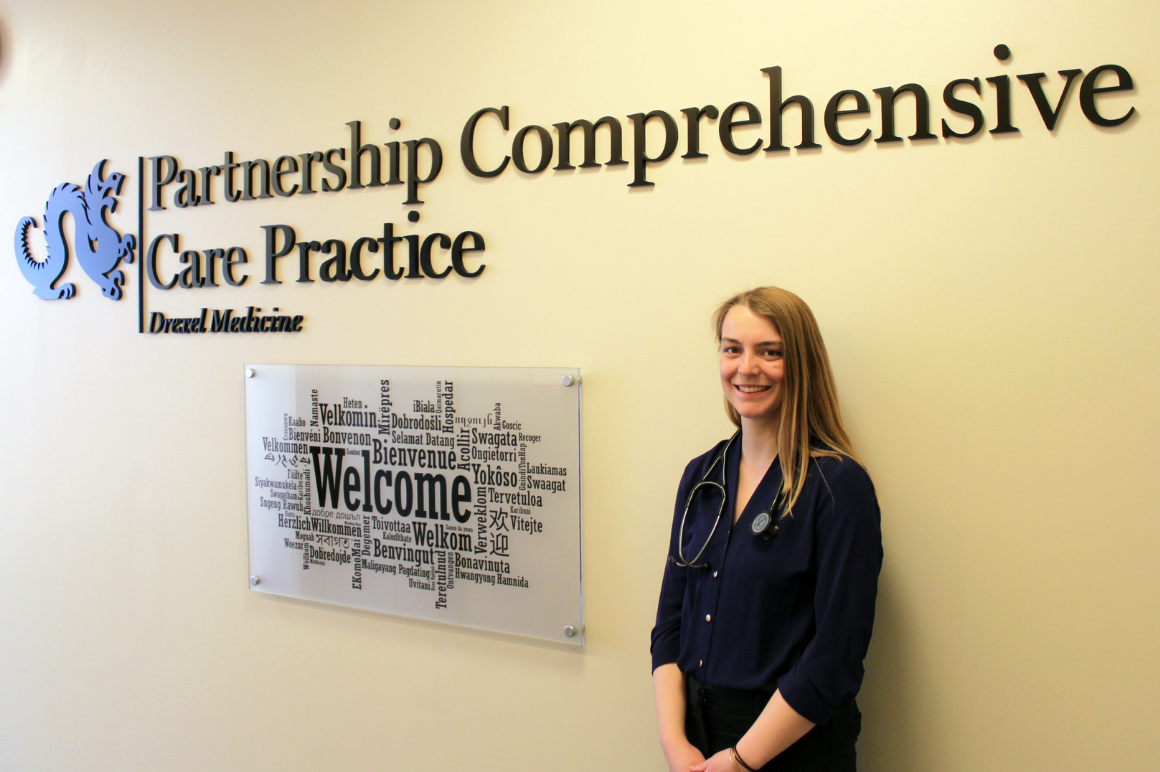Beyond Medicine: Gaining a New Perspective on Providing Care

April 19, 2019
An MD/MPH student discovers that the program and her Integrated Learning Experience expand her professional horizons and opportunities in unexpected ways.
Heather Conway, MD/MPH ’20, an aspiring infectious disease specialist, has always had an interest in pursuing a medical degree, thanks in part to having parents in the medical field. But it was her discovery of the importance of public health, while volunteering with Drexel University's Global Medical Brigades, that inspired her to also get her MPH.
Medical Brigades is an international movement of students and medical professionals who travel to other countries — Honduras in Conway’s case — to work alongside local community residents and health professionals in a neighborhood clinic. Beyond providing medicine and tools, Medical Brigades holds public health workshops on a range of topics important to local communities. “This trip sparked my interest in public health, specifically in epidemiology, community health, and prevention. It gave me a new perspective on how I want to provide care,” she says.
Conway decided to pursue an MD/MPH dual degree from the College of Medicine (DUCOM) and the Dornsife School of Public Health (DSPH) at Drexel University to go beyond the traditional roles of a physician. “I believe considering health problems from both the individual perspective and the population perspective is the best way to develop solutions and make a significant impact on health in communities,” Conway says.
Now, in her fourth year of pursuing a dual degree from DUCOM and DSPH, Conway is applying this approach to health care in the real world while completing her Integrated Learning Experience (ILE) at the Partnership Comprehensive Care Practice at Hahnemann University Hospital, an HIV clinic in center city Philadelphia. She helped launch a research project that is evaluating the effectiveness of using doxycycline prophylaxis for syphilis prevention among men who have sex with men (MSM). Very few studies have been done so far on this method of prevention.
According to the Centers for Disease Control and Prevention (CDC), the number of primary and secondary cases of syphilis in the United States increased by 11 percent between 2016 and 2017, and there were 30,644 cases reported in 2017. The majority of the cases (58 percent) were among MSM. With syphilis rates also rising in other populations, Conway says, “It is rewarding to be involved in something that is addressing such a relevant public health issue affecting my city.”
The multi-year study, will likely yield preliminary results next spring.
Another notable aspect of the MD/MPH program for Conway has been the opportunity for networking. “I have made so many contacts that I probably wouldn’t have made if I hadn’t gone through this program, including physicians, epidemiologists, health department employees, and even my own classmates/public health colleagues in the future,” she says.
To students considering the program Conway says: "It’s a wonderful opportunity to enhance your critical thinking skills, expand your professional network, and to contribute to change in your local and scientific communities.”
Learn more about the MD/MPH program